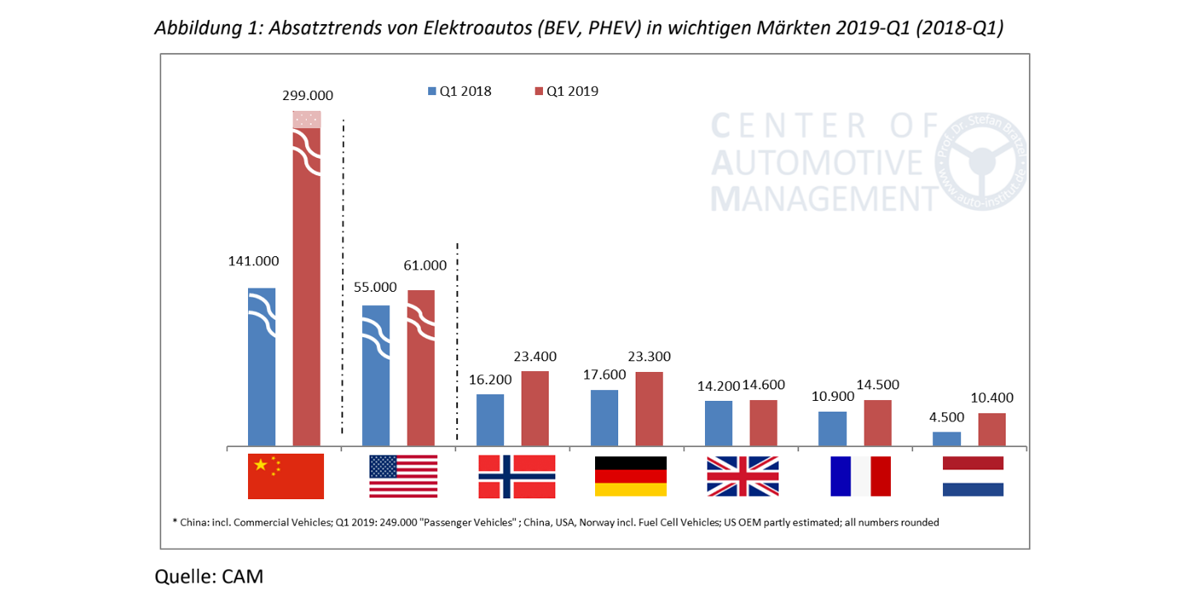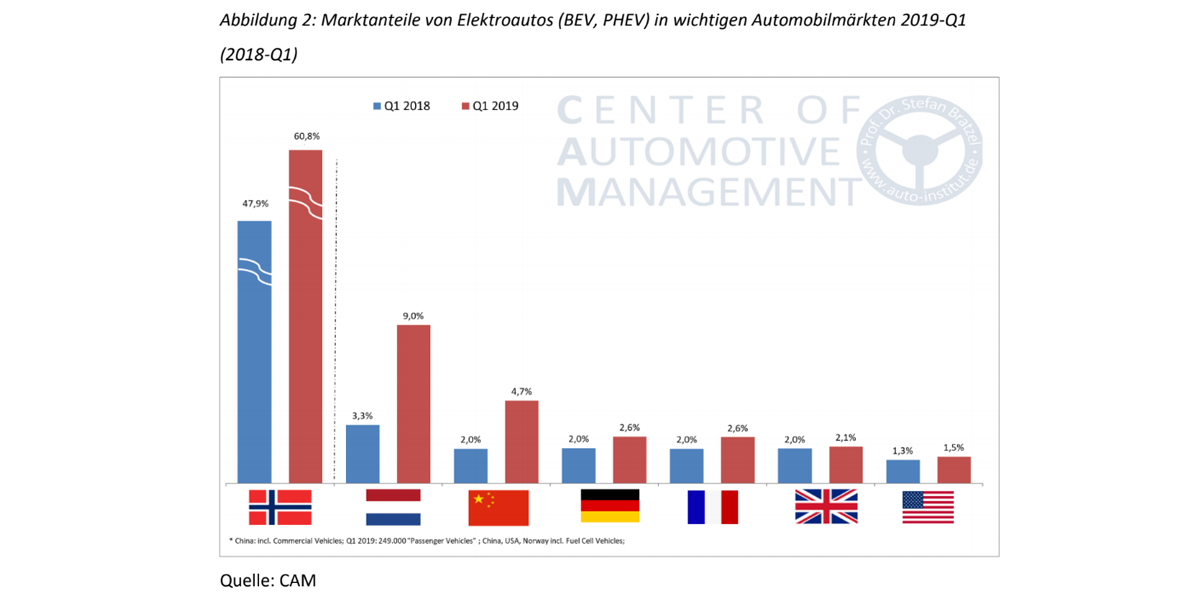More electric cars being sold despite market downturn
The latest report by the Center of Automotive Management (CAM) forecasts electric vehicle sales to continue to gain momentum in 2019 – despite a decline in the overall number of car registrations. China and Norway remain the drivers and exceptions of the global trend.
The Center of Automotive Management (CAM) is devoting its current analysis to the 2019 sales trends. For this purpose, Prof. Dr Stefan Bratzel’s team evaluates the new registration figures for the most important e-automotive markets in the first quarter of 2019 and compares them with the Q1 figures for 2018. It looks at China, the USA, Norway, Germany, Great Britain, France and the Netherlands.
The core statements of the report can be summed up as follows: The overall car market is weakening collectively, but the market for electric vehicles (including plug-in hybrids) is showing high momentum almost everywhere in the first quarter against this trend.
China’s dominance on the plug-in market remains unbroken and Norway retains its unique selling proposition as a country with a new electric car quota above the 60 per cent mark. While Germany is making steady but slow progress, the Netherlands is attracting attention with new registrations in Q1 with a far-above-average plug-in market share of 9 per cent.

But one thing at a time: Compared to Q1 2018, demand for plug-in vehicles in China more than doubled in Q1 2019 – with the overall market shrinking by 11 per cent. In absolute terms, sales rose to 299,000 e-vehicles. For the market share of electric cars, this means an increase in new registrations from 2.0 to 4.7 per cent – 80 per cent of which are purely electric vehicles.
In Norway, the market share of electric vehicles in new registrations in Q1 climbed to a sensational 61 per cent (Q1 2018: 48 per cent) – above all thanks to sales of purely electric cars. In concrete terms, the 23,405 new electric vehicles (Q1 2018: 16,200) in Norway represent an increase of 45 per cent. In March, for example, purely electric cars alone achieved a market share of 58.4 per cent of new registrations in Norway – a new record. A total of 10,728 battery electric cars were registered, twice as many as in the same month last year.
In terms of sales figures, the USA remains the second-largest EV market, with new registrations of electric cars rising only moderately by 11 per cent to 61,000. In a declining overall market, the market share is growing accordingly from only 1.3 to 1.5 per cent – a low level by international standards. The study shows that electric car manufacturer Tesla is responsible for around half of the vehicle sales in the USA.

In the UK, the dynamics of e-vehicle sales in a declining overall market (-2.4 per cent) are low: in view of a tiny plus of 2.8 per cent to 14,600 units, the market share remained almost unchanged (2.1 instead of 2.0 per cent). France is on a par with Germany in terms of growth rate (+33 per cent). 14,500 new electric cars in the first quarter also represent an increase in market share from 2.0 to 2.6 per cent. The Netherlands, on the other hand, shows enormous dynamism: in a strongly declining overall market (-14.4 per cent), sales of electric vehicles rose by 132 per cent to 10,400 units. This growth is reflected in a jump in the market share of new registrations from 3.3 to 9.0 per cent.
“Electric mobility is on the verge of a breakthrough in the central automotive markets,” says Stefan Bratzel, head of the study, interpreting the results. It is conspicuous that electric vehicle sales are already able to withstand a general downturn in the overall market. “The dynamics are based on pure EVs, while sales of plug-in hybrids are currently declining,” explains Bratzel. His team regularly publishes industry studies on current market trends and product strategies of global automakers.
Source: CAM report via email





0 Comments